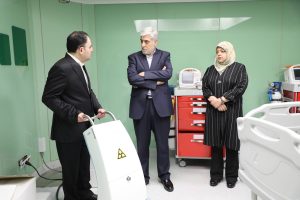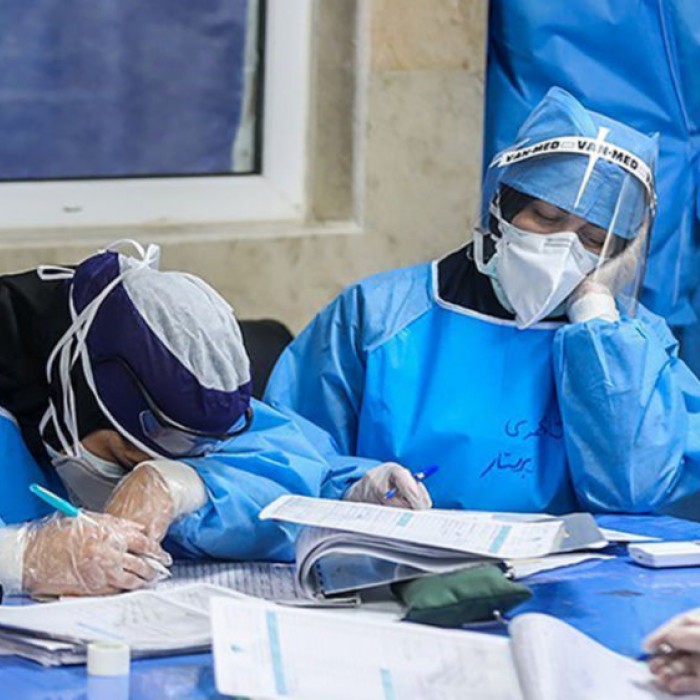
فهرست مطالب
برای امتیاز به این نوشته کلیک کنید!
[کل: 0 میانگین: 0]
Beyond Burnout: Fragile Fabric of Human Connection in Modern Healthcare
Barekat Health & Pharmaceutical Group: Modern medicine stands on the pinnacle of technological sophistication. Robotic surgeries, precision therapeutics, AI-driven diagnostics—these are the milestones of a rapidly evolving field. Yet, amid this astonishing progress, a quieter crisis unfolds: the systematic erosion of human relationships in healthcare settings. Doctors become distant. Nurses, depleted. Patients, reduced to data points and diagnostic codes.
This crisis is not one of medical knowledge, but of emotional disconnection—a slow unraveling of the interpersonal threads that form the core of healing. Clinical excellence alone cannot compensate for the absence of empathy, attentiveness, and meaningful dialogue. As healthcare systems become more mechanized and metrics-driven, the intimate human elements—listening, compassion, trust—are increasingly marginalized.
In this article, we critically examine the psychosocial and institutional dynamics behind this phenomenon. Drawing on recent empirical data, multidisciplinary perspectives, and front-line narratives, we argue that the health of a system is ultimately inseparable from the quality of its human relationships.
Emotional Exhaustion of Care: Burnout as an Epidemic of Connection Loss
Burnout in healthcare is now recognized by the World Health Organization as an occupational syndrome with profound systemic implications. However, beyond its physical and psychological toll, burnout represents something more insidious: the gradual decay of empathy. Nurses, often overburdened with administrative tasks and emotionally charged situations, begin to depersonalize patient care as a survival mechanism.
Meanwhile, physicians are caught in a paradox—they are entrusted with human lives, yet denied the time to treat them as humans. Time constraints, bureaucratic protocols, and defensive medicine culture foster hurried consultations and perfunctory exchanges. The result is not just a tired workforce, but a relationally impoverished one.
Technological Paradox: Innovation Without Intimacy
Ironically, the very technologies that were introduced to improve care—electronic medical records, digital triage systems, algorithmic decision aids—often serve to widen the relational gap. Clinicians now spend more time facing screens than speaking with patients. A recent JAMA study revealed that primary care physicians allocate nearly twice as much time to documentation as to direct patient interaction.
This techno-clinical imbalance creates a clinical gaze that is mechanical, not humane. Listening becomes rare. Empathy, optional. Patients report feeling like “cases,” not individuals. But a healthcare system that listens poorly diagnoses poorly—and heals incompletely.
Patient’s Perspective: Dehumanized by Design
In the midst of this institutional detachment stands the patient, whose experience of care is shaped not only by medical outcomes but by the tone, timing, and texture of human interaction. Patient satisfaction surveys, while imperfect, repeatedly underscore the importance of communication in perceived quality of care. A cold, rushed interaction can overshadow even the most technically successful treatment.
For marginalized populations—such as the elderly, immigrants, or the chronically ill—this emotional distance is further amplified. In these contexts, human connection is not just a “soft” skill; it is a clinical determinant of trust, adherence, and therapeutic alliance.
Structural Pressures: When Institutions Supersede Individuals
The breakdown of human relationships in healthcare is not solely the result of individual apathy. It is a byproduct of systemic misalignment. Institutions reward throughput over thoroughness, quantifiables over quality, documentation over dialogue. Emotional labor—so central to nursing, pharmacy, and primary care—is unmeasured and thus undervalued.
Healthcare workers are placed in an impossible bind: to be fast and accurate, but also warm and compassionate. This contradiction generates moral injury, defined as the emotional distress that arises when one is unable to act in accordance with one’s ethical values. The system, in essence, becomes hostile to humanism.
Pharmacists & Frontlines: Invisible Bridges in a Fractured System
Pharmacists—often excluded from the doctor-patient dyad in health policy discussions—occupy a crucial, and frequently overlooked, space in the relational ecosystem of care. As accessible health professionals, they interpret prescriptions, provide counsel, and build continuity for chronic patients. Yet mounting workloads and retail metrics threaten this function.
The interpersonal time that once defined pharmacy care is now compressed into transactional exchanges. The shift from care provider to product dispenser reflects the commodification of healthcare interactions—a trend that must be reversed if relational integrity is to be preserved.
Way Forward: Rehumanizing the System Through Design & Culture
True reform requires a redesign of healthcare environments that honors both clinical efficacy and relational depth.
This includes:
-Revisiting care delivery models to create protected time for patient interaction.
-Integrating emotional intelligence and communication skills into medical education.
-Institutionalizing mental health and peer support systems for healthcare workers.
-Shifting organizational KPIs to include relational quality, not just throughput.
-Leveraging technology to facilitate, not replace, meaningful human contact.
-Healthcare must be reclaimed not only as a science but as a deeply human enterprise. This reclamation begins with culture—one that esteems
-Integrating emotional intelligence and communication skills into medical education.
-Institutionalizing mental health and peer support systems for healthcare workers.
-Shifting organizational KPIs to include relational quality, not just throughput.
-Leveraging technology to facilitate, not replace, meaningful human contact.
-Healthcare must be reclaimed not only as a science but as a deeply human enterprise. This reclamation begins with culture—one that esteems
-compassion not as a luxury, but as a clinical competency.
Conclusion: Toward a New Ethos of Care
The soul of medicine is relational. When we lose sight of this truth, we risk becoming technicians of disease rather than stewards of healing. The exhausted nurse and the impatient doctor are not failures of character; they are warnings of a system at odds with its own purpose.
To heal patients, we must first mend the fractured relationships at the heart of healthcare. Only then can we move beyond burnout, beyond bureaucracy, and toward a model of care in which empathy is not an afterthought—but the starting point of every clinical encounter.
برای امتیاز به این نوشته کلیک کنید!
[کل: 0 میانگین: 0]
مطالب مرتبط
-
Barkat Group specialized meeting

-
Safa Appointed as Barekat General Director

-
Barekat Health & Pharmaceutical Group at the 10th Iran Pharma Exhibition

-
Ali Safa visits Sobhan Oncology & Sobhan Darou
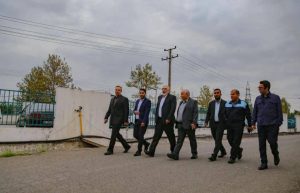
-
Pirsalehi & Safa visit Saman Daroo 8 Knowledge-based Company
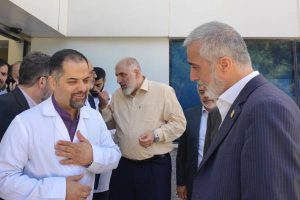
-
Barekat Managing Director Visits Samen Pharmaceutical Company
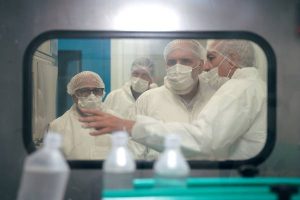
-
Honoring Pharmacists’ Day
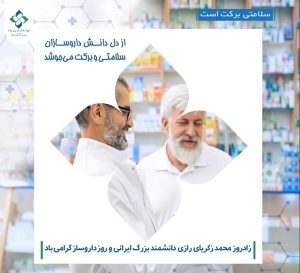
-
Barekat Top Executives Visiting to Barekat Hospital
